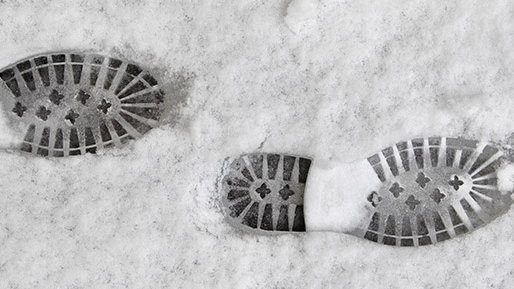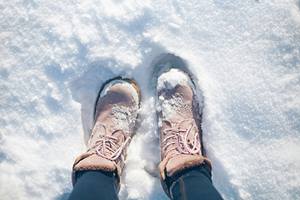

With snowstorms on the horizon, Intermountain’s caregiver safety team would like to remind you of some quick, simple tricks to avoid slips, trips, and falls this winter.
“Even though we’re focused on safe practices for preventing COVID-19, we can’t forget other practices that keep you healthy—like avoiding painful slips, trips, and falls as the weather changes,” says Craig Allen, safety management director. “These tips, along with a simple awareness measures, will keep all of us safe and free from injury this season.”
Here are 10 tips to avoid winter slips, trips, and falls:
- Walk slowly and carefully in appropriate footwear.
- Be careful getting in and out of vehicles.
- Watch for wet, slippery floors when you enter and exit buildings.
- Avoid walking with hands in your pockets or carrying items in your hands. Use a bag to carry your belongings.
- Watch out for ice underneath snow.
- Use pathways that are clear of snow and properly salted. Avoid purposefully walking on snow or ice.
- Walk as flat footed as possible in very icy areas.
- Give yourself plenty of time to get to work and stay connected to those at the facility if driving on snow or icy roads. Don’t rush.
- Don’t text and walk. Pay attention to your surroundings.
- Report any unsafe conditions to Facilities Management.
“Our teams can plan for snow, but we can’t see everything,” says John Ellis, facilities management director. “We depend on all of our caregivers to help us know where the danger is.”
Bonus Tip: If you’re signed up for a redeployment shift at Park City or Heber Valley Hospital, remember these facilities are located at higher elevation and experience adverse weather conditions like heavy snow, ice accumulation, freezing temperatures, and wind chill—often when the weather in the valleys is much warmer. And sometimes, these conditions are unexpected. Make sure you follow the weather forecast and are prepared for your shift, including warm clothes, proper footwear, and an emergency bag in your car with an extra set of clothes and toiletries in case the canyon closes.

